In 2017, the Farm started hosting our monthly educational speaker series. The series of evening presentations aims to spark discussion and learning around important issues. All topics, while related to the farm, are also highly relevant to everyone in our community, including issues surrounding nutrition, change in the food system, the environment, and creating healthy communities.
Whether you are a neighbor to the farm, an outdoor enthusiast, an environmental advocate, or an eater who is curious to learn more and connect with other interested folks, our Speaker Series is a great resource!
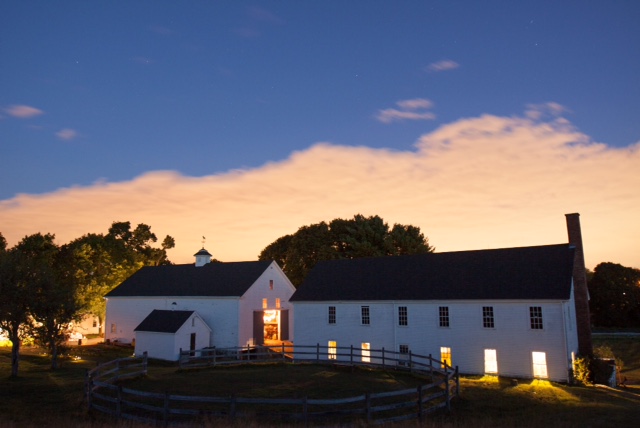
A Few Things to Note About Our Series:
– Free and open to the public – Everyone is invited to learn here!
– Starts at 7:30PM, speaker presents for an hour, followed by a Q&A session
– We offer a casual picnic supper (sandwiches from Clover Food Lab, iced tea/lemonade & cookies for around $20), starting at 6pm. Please e-mail our Events Manager with any questions and to reserve your meal.
– Each session will be recorded and eventually posted on our website so can rewatch and share!
– Please RSVP by clicking the links below
2019 Speaker Series
As of October 16th, we have concluded our 2019 Speaker Series. This season, each session focused on issues surrounding climate change and sustainability. In an effort to learn more (and do more!) about the complex situation that we all face at this time. Please watch the recordings here or look for them on your local cable access channel. Stay tuned and if you have any questions or suggestions, you can reach out to Education Director, Erika Gorgenyi at egorgenyi@wlfarm.org.
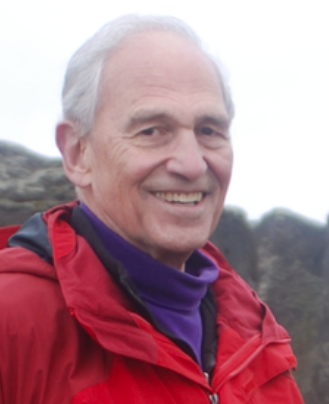
May 22nd – William Moomaw
Climate Change in New England: Becoming a Resilient Part of the Solution
Join us for a presentation with Dr. William Moomaw as he gives us a better picture of the implications and solutions of climate change in New England and what individuals, families, and communities can do to help mitigate these effects.
William Moomaw Ph.D.
William Moomaw is Emeritus Professor of International Environmental Policy and Founding Director of the Center for International Environment and Resource Policy at The Fletcher School at Tufts. He currently serves as Co-Director of the Global Development and Environment Institute at Tufts, which he co-founded. After serving as AAAS Science Fellow in the US Senate, he began working on climate change in 1988 as the first director of the climate program at World Resources Institute in Washington. He has been a lead author of five Intergovernmental Panel on Climate Change (IPCC) Reports. The IPCC shared the Nobel Peace Prize for its climate work in 2007.
Dr. Moomaw chairs the board of directors of two climate science and policy organizations, The Climate Group North America and Woods Hole Research Center. He also serves on the boards of directors of The Nature Conservancy of Massachusetts, the Consensus Building Institute, Earthwatch Institute, and is on the National Advisory Boards of the Union of Concerned Scientists, and Young Voices for the Planet. Dr. Moomaw and his wife, Margot, were also able to complete a zero net energy home in Williamstown MA in 2007.
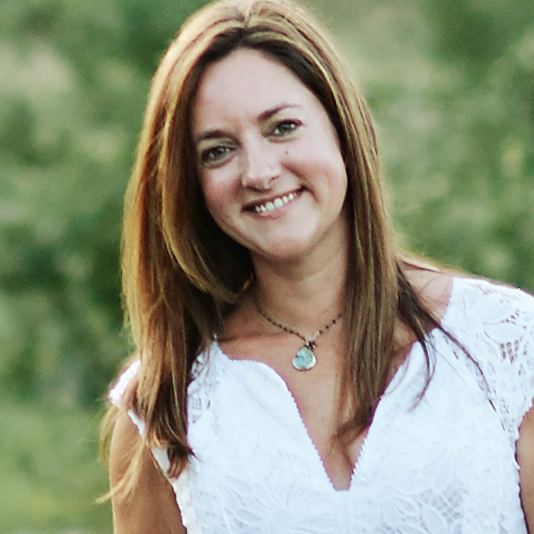
June 5th – Diana Rogers
Sacred Cow: The Nutritional, Environmental and Ethical Case for Better Meat
Red meat is vilified as unhealthy and unsustainable while the plant-based diet is seen as ideal. But is there more to the story? Could there be nuance to this conversation that’s not being discussed? Does eating beef really cause diabetes and will grazing animals destroy the planet? Diana Rodgers, an author, podcast host and dietitian living on a working organic farm, will review the evidence against red meat and illustrate why raising animals for meat is not only healthy, but can be beneficial for the environment.
Diana Rogers RD, LDN, NTP
Diana Rodgers, RD, LDN, NTP is a “real food” nutritionist living on a working organic farm near Boston, Massachusetts that runs a vegetable and meat CSA. She is the author of two bestselling cookbooks and runs a clinical nutrition practice. Diana writes and speaks about the intersection of optimal human nutrition, environmental sustainability, animal welfare and social justice. She is also the producer of The Sustainable Dish Podcast, interviewing experts in the environmental and health movement. Her new book and film project examines the environmental, nutritional and ethical case for “better meat’. She can be found at www.sustainabledish.com.
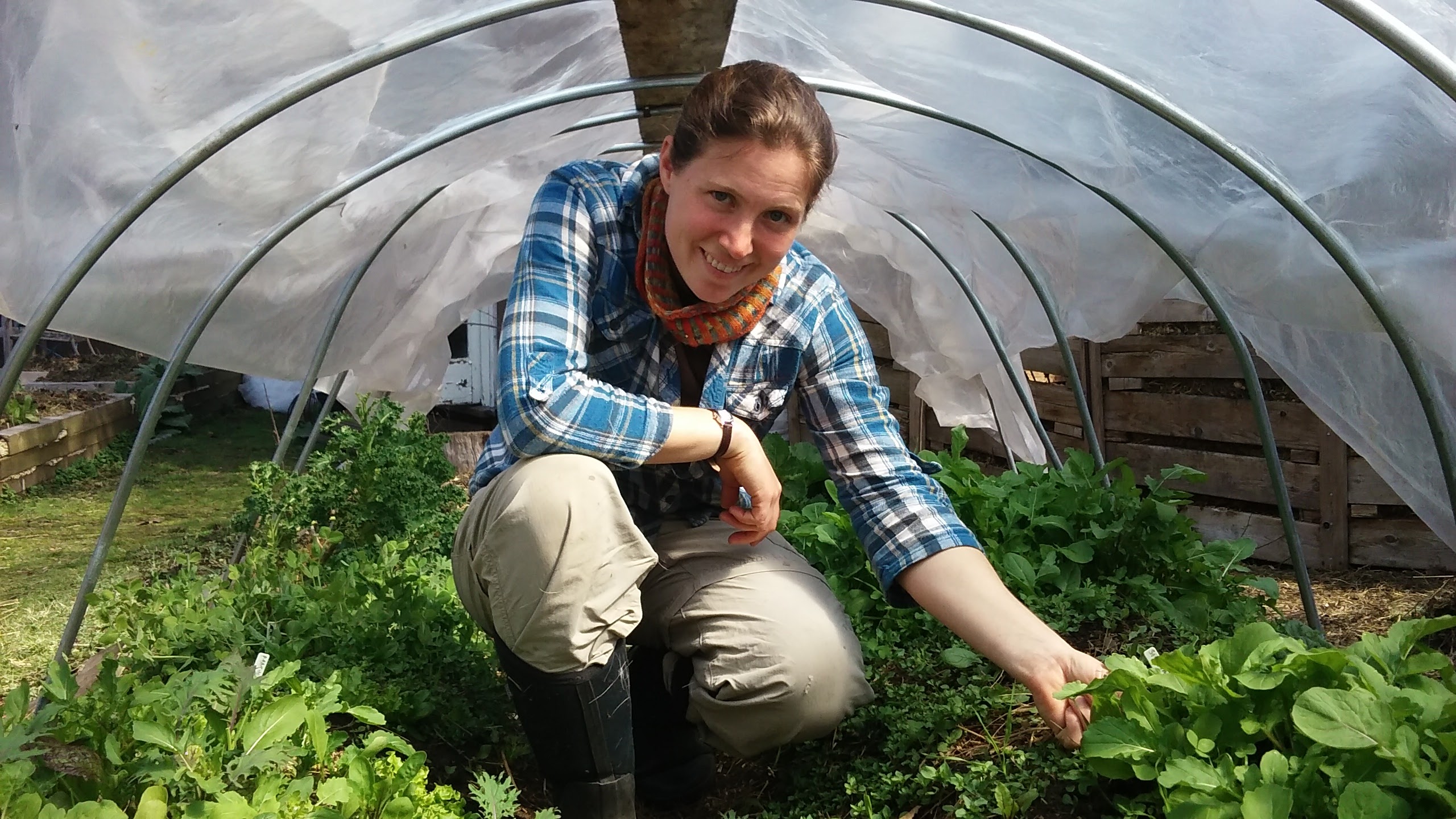
July 24th – Allison Houghton
Climate Resilience in Your Own Backyard
Soil is alive with more microbes in a teaspoon of healthy soil than there are people on this planet. Only in recent years have we come to fully understand the extent to which a thriving soil also has the potential to rapidly sequester carbon, store and filter water, buffer extremes, break down toxins, and support biodiverse ecosystems. This talk is a call for gardeners to learn to become stewards of the immense thriving world beneath our feet. Learning these skills not only has benefits for our gardens and the food we grow, but also for our local ecosystems, watersheds, communities, and for the planet.
Allison Houghton is a soil, plant and natural world enthusiast. She recently wrote The Carbon Sequestering Garden: Gardening for the Planet While Growing Some of the Best Food Possible. She has played many roles over the past few years as a gardener, farmer, teacher, writer, mother, and naturalist, including as former Director of Horticulture at Green City Growers in Somerville where she wrote the gardening guide, The Urban Bounty: How To Grow Fresh Food, Anywhere. She currently works at the Northeast Organic Farming Association with their soil technical assistance program.
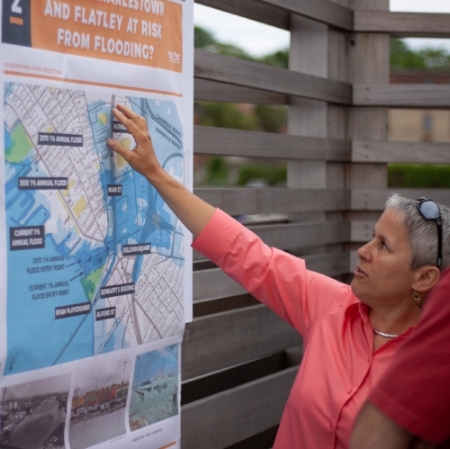
August 21 – Julie Wormser
Making Room for the River: Climate Resilience in the Mystic River Watershed
The Mystic River Watershed is the most densely populated and urbanized watershed in New England. With nearly fifty percent of the watershed developed and paved, heavier rain events mean more widespread stormwater flooding. Once filled-in tidal rivers and marshes now represent growing risks of chronic flooding. We need to make more room for the river.
In September 2018, ten cities and towns, facilitated by the Mystic River Watershed Association (MyRWA) and Consensus Building Institute (CBI), launched the Resilient Mystic Collaborative which focuses on increasing social and physical resiliency to climate change. Come find out what Winchester and our neighbors are doing together to prepare our people and places for unprecedented and unpredictable weather.
Julie Wormser
Julie Wormser is the deputy director of the Mystic River Watershed Association and founder of the Resilient Mystic Collaborative. Prior to joining MyRWA, she was the Vice President for Policy and Planning at Boston Harbor Now. As Executive Director of The Boston Harbor Association, Wormser was instrumental in drawing attention to Boston’s need to prepare for coastal flooding from extreme storms and sea level rise. She coauthored Preparing for the Rising Tide and Designing With Water and co-led the Boston Living with Water international design competition with the City of Boston and Boston Society of Architects. She has a BA in biology from Swarthmore College and an MPA from Harvard University’s Kennedy School of Government.
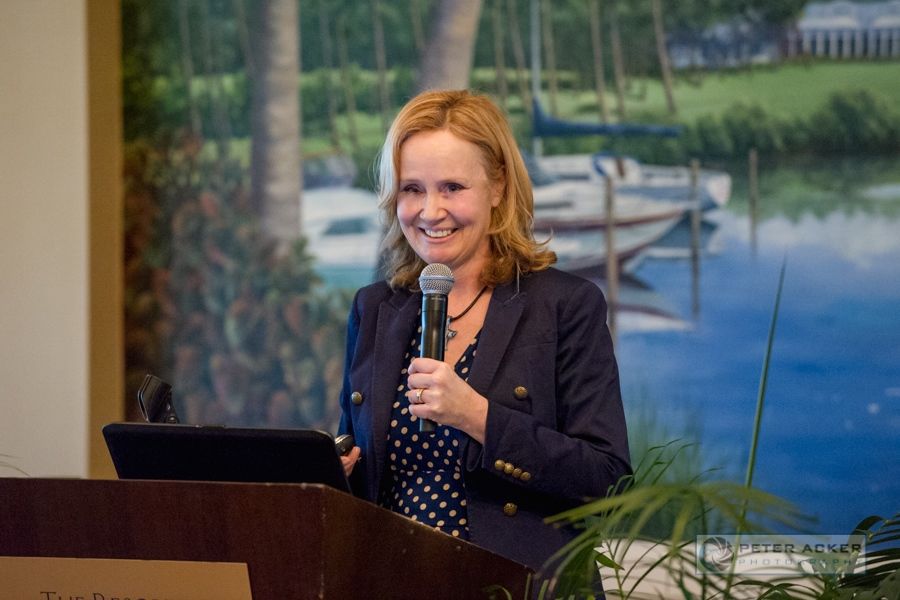
September 25th – Laura Parker Roerden
Why the Ocean Matters: It’s Probably Not Why You Think
Solutions to climate change require us to think differently about how the land and sea connect to communities. Laura Parker Roerden, founder/executive director of Ocean Matters and fourth generation farmer will take us on a journey into a new paradigm for farms informed by oceans that optimizes climate mitigation through integrating regenerative soil practices with other ocean conservation efforts such as the protection of our beloved and iconic right whale, our quest to stop algal blooms and dead zones, better management of water resources, and the need to address ocean acidification. Furthermore, engaging with this paradigm in holistic ways can help communities build resilient youth, expand our notion of tribe, and give us new ways to belong.
Laura Parker Roerden
Executive Director and founder of Ocean Matters, Laura Parker Roerden has over twenty-five years of experience in environmental education and educating for social responsibility. She is a lecturer and author of many books, curricula and articles on young people’s social, emotional, and ethical development. She is the former publisher and managing editor at Educators for Social Responsibility and former managing editor of the magazine New Designs for Youth Development. Laura currently serves on the board of directors of both Women Working for Oceans (W20) at the New England Aquarium, as well as Earth, Ltd. of Southwicks Zoo and is a member of the Pleiades Network of Women Leaders in Sustainability. She lives on a fifth generation family farm in the Blackstone Valley of Massachusetts.
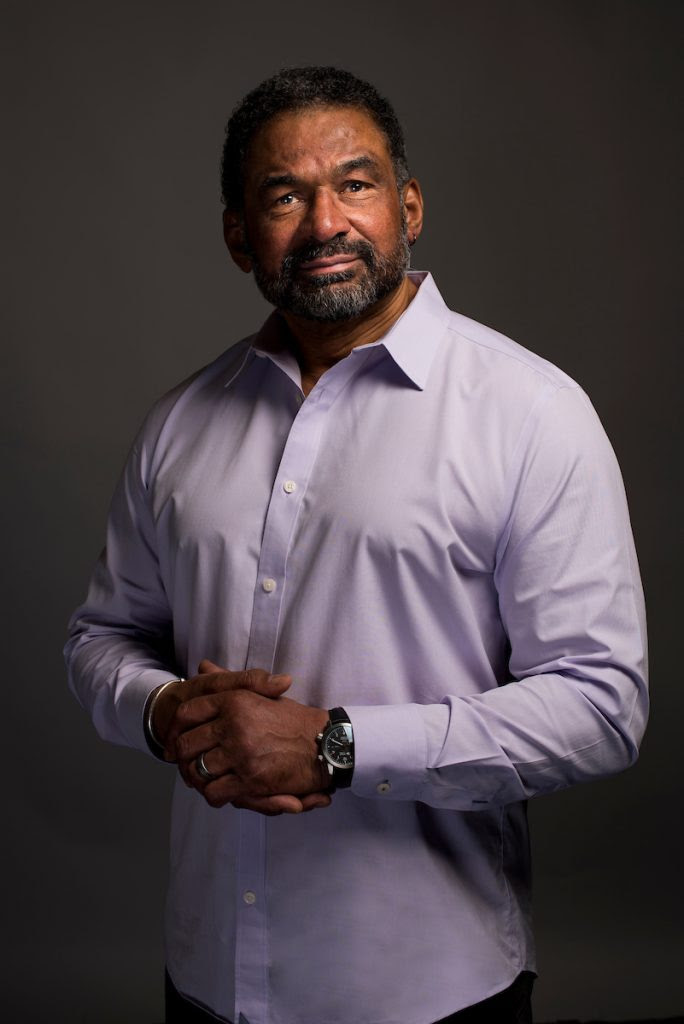
October 16th – Julian Agyeman
Just Sustainabilities
In his talk, Julian will outline his concept of ‘just sustainabilities’ – the full integration of social justice and sustainability, defined as ‘the need to ensure a better quality of life for all, now and into the future, in a just and equitable manner, whilst living within the limits of supporting ecosystems.’ He will give practical examples from his recent research into spatial justice in urban planning and design, food justice, sharing cities, and planning in and for intercultural cities.
Julian Agyeman
Julian Agyeman Ph.D. FRSA FRGS is a Professor of Urban and Environmental Policy and Planning at Tufts University. He is the originator of the increasingly influential concept of just sustainabilities, the intentional integration of social justice and sustainability.
Worldwide, he is recognized as an expert, an innovator and thought leader. He is the author or editor of 11 books, and was co-founder in 1996, and is now Editor-in-Chief of Local Environment: The International Journal of Justice and Sustainability. Julian sits on the Academic Board of The Centre for the Future of Places (KTH Royal Institute of Technology, Stockholm, Sweden), the Board of Directors of EcoDistricts (Portland, OR) and on the Advisory Boards for equitable and sustainable initiatives for cities including San Francisco, Dublin, London, and Montreal.
In 1996, he was elected to the Fellowship of the Royal Society of the Arts (FRSA) in the UK, a network of people dedicated to enriching society and shaping the future through ideas and action. And in 2018, he was awarded the Athena City Accolade by KTH Royal Institute of Technology, Stockholm, Sweden, for his “outstanding contribution to the field of social justice and ecological sustainability, environmental policy and planning“.